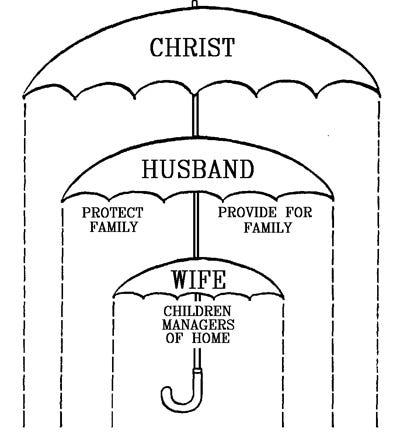Truth for when the shine wears off
Yes, *Shiny Happy People* is a portrait of a theological disaster
If this post is too long for your email app, you should be able to click on “View entire message” to see the whole thing.
Gentle reader,
I’m just back from some sunny days at the beach with my family, and I hope summer gives you an opportunity for some space away from your usual, and—God willing—an opportunity to be ready to come back home. There’s something special about knowing you’re ready to leave a beach paradise for your own garden. (Or maybe I’m just revealing the depths of my hobbity introvertedness; in any case, I was glad to go, and I’m glad to be home!)
Author’s photo of a glorious vacay sky.
Today, I’m writing about theological errors in the world of the documentary Shiny Happy People. You know the thing is a mess, but maybe you could use some help putting it into words?
Amazon Prime describes the documentary like this:
“A limited docuseries exposing the truth beneath the wholesome Americana surface of reality tv’s favorite mega-family, The Duggars, and the radical organization behind them: The Institute in Basic Life Principles.”
The language of “exposing” feels right, because it’s clear that the Duggars were very careful about hiding the whole truth when they filmed their “reality” shows. Jim Bob Duggar claims to want to share his faith, but he was savvy about what needed to stay hidden if his family was to capture their audience.
Unlike Duggar faith, Christian faith is not afraid of exposure—is not afraid of being placed in the sunlight for all to see—for Christian faith should have nothing to hide.
The trailer for the documentary, Shiny Happy People
Below, you’ll find seven reasons the world we see in the documentary is one of bad theology, that is, it’s a world that tells lies about God.
1. Grounding relationships in authoritarian control— misunderstanding the nature of God and of human beings. So denying the priesthood of all believers.
The Christian God is not some patriarch in the sky. The Christian God is the Lord Jesus Christ, one in glory and majesty with his Father and Spirit. The Lord Jesus Christ is the one who says, to us:
“I no longer call you servants, because a servant does not know his master’s business. Instead, I have called you friends, for everything that I learned from my Father I have made known to you” (John 15:15).
God’s own life is not an authoritarian patriarchy; the Father shares all with the Son and the Spirit. The trinity is co-equal, mutual, love. And human beings were created in the image of God for personal relationship with God and each other. Personal relationship does not treat the other as “servant” but knows the other as “friend.”
Human beings aren’t meant to relate to God as blindly obedient underlings. We can claim our status as co-heirs with Jesus and “come boldly to the throne of grace” (Hebrews 4:16), as people confident because we are beloved of God. If the God of the universe makes us children and friends, surely we are called to treat each other as siblings and friends, not as subordinates?
Below, an image of “umbrellas of authority,” as taught by Bill Gothard, the leader of the movement behind the Duggars. This is clearly image of subordination—not a friends and family image—and it is an image unjustifiable by scripture, even on extreme complementarian readings.
I imagine the great Protestant Reformers raging against this image. Those Reformers worked to remove any creaturely or churchly mediators who claimed to stand between believers and God; for, there is “one mediator between God and humankind, Christ Jesus, himself human” (1 Timothy 2:5).
In the “umbrellas” image, wives and children find layers of mediators separating them from God. The churchly mediators Luther wanted to remove are replaced by mediators in the home.
The Protestant claiming of the priesthood of all believers (1 Peter 5:9) teaches us that there are no hierarchical levels among Christians; we all have personal, intimate access to God.
The Luther insult generator (which pulls insults from Luther’s works—use at your own risk; Luther was salty and immoderate!) has this to say:
“O you wolf in Christendom!”1
2. Twisting providence to ignore human dignity & responsibility while, paradoxically, trying to control the outcomes of providence. So denying the goodness of God and the reasonableness of the faith.
The word “providence” names the Christian teaching that God exercises protective care over all creation, that God is the sovereign King of the universe. God is the one who knows when a sparrow falls (Matthew 10:29).
The world of the show twists this teaching in two contradictory ways. On the one hand, providence is treated as though it were blind fate, denying that God calls us to responsibility, discernment, and action. On the other hand, providence is treated as a thing to be controlled, as though God could be manipulated by humans performing the right dance. The two errors are logically contradictory, but that doesn’t keep them from existing together in the Duggar world.
We see the first error in the theology of “trusting God with the size of a family,” which proscribes birth control and any means of family planning. Here, “providence” is understood as requiring inaction. Even though we know how reproductive biology works, conception is treated as a divine mystery in which human beings play no part. The idea that God’s providence might intentionally cause harm (for instance, if a pregnancy will endanger a mother’s health) denies the goodness of God and twists providence into something evil.
The second error comes in the idea that Christians can control or even “guarantee” desired outcomes for their children and families by following a certain set of rules. Here, “providence” is not a mystery at all; we understand it mechanistically, and we believe we can control it. The idea that there is a formula that guarantees success appeals to people in the thick of the hard work of parenting, but the guarantees are a lie. We cannot make our kids into Christians. Only the Spirit can do so. This denial of providence is the reason the Duggar world has been accused of teaching a “health and wealth” or “prosperity” distortion of the gospel. The accusation is fair. Which brings us to point three.
3. Distorting the gospel into a story about our purity, in which we must do the right things, instead of a story about what Jesus does for us in his life, death, & resurrection. So denying salvation by grace.
There is a whole complicated conversation about how exactly to define the word “gospel,”2 but I hope we can agree that the good news of Jesus is not “do things right so that I will approve of you.”
Let’s just take, instead, one definition of the gospel from Paul:
“Now I make known to you, brethren, the gospel which I preached to you, which also you received, in which also you stand, by which also you are saved, if you hold fast the word which I preached to you, unless you believed in vain. For I delivered to you as of first importance what I also received, that Christ died for our sins according to the Scriptures, and that He was buried, and that He was raised on the third day according to the Scriptures” (1 Corinthians 15:1-4).
So the gospel is about who Jesus is. It is not about human families maintaining purity.
But all that “faith-sharing” in the Duggars’s TLC reality shows is not focused on the life, death, and resurrection of Jesus. It’s about the “gift of children,” “obedience,” “modesty,” and the like. The news being shared is a set of rules to follow, not the good news of Jesus, to whom we’re invited to belong.
All the business about modesty and sex is just one example of the be-good-and-achieve-purity message of the Duggar world. First, modesty is defined in an extra-biblical way, as a mandate to hide women’s bodies. Then, said modesty is policed ruthlessly, and rule-breakers are punished. Instead of the gospel that salvation is by grace, we have a system of exacting rules and punishing standards.
Again, I think of Luther, who groaned over the weight of the rules on his shoulders, until he was set free by the grace of Jesus Christ. I imagine his reaction to a “teacher” like Gothard imposing rules and rules and rules again.
4. Claiming personal, individual revelation and so moving people away from the authority of scripture & into the hands of frauds. So denying that the content of the faith must be based on scripture.
This was not highlighted in the documentary, but it’s important. Gothard teaches that Christians should read the Bible looking for personal, individual messages for their own application. This is tricky, because it looks like reliance on scripture, but instead, it moves his followers away from the actual words of scripture and off into the territory of “personal” revelations. It leaves his followers unbound to the Word and able to claim any meaning for the text. The teaching is similar to the Mormon idea that individual believers can receive new revelations. Against this, orthodox Christianity insists that the canon of scripture is closed, and that nothing can be added to it.
5. Creating a world of fragmented individualism, which rejects the greater Church and the importance of community protections. So ignoring the truth of the body of Christ.
This world is not just individualistic in terms of interpretation of scripture. It also privileges individuals—especially fathers in nuclear family units—over the church, and it explicitly seeks to escape societal protections, which are understood as threats to the purity of the family.
In her book Quivering Families: The Quiverfull Movement and Evangelical Theology of the Family, Emily McGowin notes how, here, “children are envisioned not primarily as members of the body of Christ but as the (subordinate) members of the nuclear family.”
Home church, when it is a closed gathering of a few families or even one family, rejects the gifts of the church, “the apostles, the prophets, the evangelists, the shepherds and teachers” given “to equip the saints for the work of ministry, for building up the body of Christ” (Ephesians 4:11-12). It rejects accountability and church discipline, all historic church structure, and Jesus’s own desire that the church might “be one” (John 17:21). Authority in church structures is often deeply flawed, but at best, it provides some accountability over and against the purely individual authority of one father in one family. The individualism of the Duggar world also rejects societal or community protections which should be in place to protect vulnerable children who may not be safe in their own families.
6. Teaching a distorted understanding of the relationship between the church & the world (or family & the world). So building enclaves instead of being in the world for the sake of the world.
Jesus prays for Christians to be in the world in order to be salt and light:
My prayer is not that you take them out of the world but that you protect them from the evil one. They are not of the world, even as I am not of it. Sanctify them by the truth; your word is truth. As you sent me into the world, I have sent them into the world. (John 17:15-18).
As the Father sent Jesus into the world, Jesus sends us into the world. We do not have to build protective enclaves to keep the world on the other side of a wall, because we are eternally safe in Jesus Christ. We are so safe in Jesus that we are free to go out into the world, even when that world may be dangerous. Our job is not to build little private paradises; it’s to bring paradise to the whole world, which God so loves (John 3:16).
And, in the United States, white evangelical fear of the world is fed by racialized fears. The dangerous “world” is the diverse world, and all that reality show Americana is coded as white. Sure, the Gothard materials are careful to show a black family living the Gothard lifestyle, but the sea of faces in the auditoriums is white. When public schools were first racially integrated, white Christians often moved for separate education for their children, with racial purity a named motive for that separtism.
Per Emily McGowin, families that so separate from the world, “have redirected the evangelical impulse to public activism into the private family home. The mission of God for the conversion of the world is handled primarily through the birth and training of many children.” While the New Testament makes the biological family relative to the church family and biological reproduction relative to evangelism, Duggar world does the opposite.
7. Imagining homes as magically free of sin. So denying that sin infects every human & every realm.
Again, from McGowin, in Duggar world, “home is imagined as a holy haven from sin and temptation, both of which are located ‘out there’ in the world.” But this is sadly untrue. Home is one of the most common locations for violence and abuse, and Christians are called to protect the vulnerable, including the women and children who are most often abused in the home. Sin is everywhere, in every human heart, and it’s dangerous business to teach anyone to give unquestioning obedience to sinners. “All have sinned and fall short of the glory of God” (Romans 3:23).
Seeing these theological errors, we may be tempted to suppose that the world of Shiny Happy People is not about us; it’s a freak show, something fringe, nothing that could to indict me.
So denying that we are all implicated in this mess.
How easy it is for us to watch and to become like the self-righteous man praying in the temple, “I thank you, God, that I am not like other people” (Luke 18:11).
But Duggar world is not so very fringe. I know too many people affected to to think so. Publishing and self-publishing get bad materials into many Christian homes. Poor church teaching does not give people the equipment they need to respond well, and complementarian theology gives a toe in the door to the Gothards and the Jim Bobs of the world.
We need to pay attention to McGowin’s thesis; this world “can teach us a lot about ourselves.” McGowin recognizes Duggar world as a heightened version of things endemic to wider American evangelicalism. Christians in that world, “remain very much embedded in the American culture they purport to challenge.”
After all, what’s more American than individualism, voluntarism, a strong work ethic, romanticizing motherhood, and tater tot casserole?
“Rather than offer a radical, countercultural vision for the Christian family, the Quiverfull movement presents a slightly modified version of something quite commonplace: a privatized, isolated nuclear family struggling (and often failing) to maintain their bonds to the broader community, the church, and other institutions.” — Emily McGowin, Quivering Families: The Quiverfull Movement and Evangelical Theology of the Family
Like crows gathering pieces of tinfoil, we humans tend to be drawn to shiny things, but our God is not the God of the shiny.
Our God is the God of the vulnerable, of the broken and downtrodden. Our God left the courts of heaven to walk with us on dusty streets and to join with us in our grief when the shine wears off the false promises and false prophets. No “umbrellas of authority” are needed; let that sweet rain fall on us all.
Little Girl Playing in the Rain, photo by Matthew Baysantos from Pexels
The glittering powers and shiny dominions will crumble, and we’ll gather around the throne of the Lamb.
“All that is gold does not glitter,
Not all those who wander are lost;
The old that is strong does not wither,
Deep roots are not reached by the frost.
From the ashes a fire shall be woken,
A light from the shadows shall spring;
Renewed shall be blade that was broken,
The crownless again shall be king.”― J.R.R. Tolkien, The Fellowship of the Ring
Grace & peace,
BFJ
This piece contains associate links. As always, I’m grateful if you choose to forward or share.
Something new: refer readers to earn free months of the full, paid version of Church Blogmatics.
Thank you for reading — your support allows me to keep doing this work. .
1. Share Church Blogmatics. When you use the referral link below, or the “Share” button on any post, you'll get credit for any new subscribers. Simply send the link in a text, email, or share it on social media with friends.
2. Earn benefits. When friends use your referral link to subscribe (free or paid), you’ll receive free access to the paid version of Church Blogmatics.
Get a 1 month comp for 3 referrals
Get a 3 month comp for 5 referrals
Get a 12 month comp for 25 referrals
Thank you for helping get the word out about Church Blogmatics!
And a brand new perk for paid subscribers:
You can now start threads in the Church Blogmatics chat, allowing you to lead conversations in our community.
Click below to upgrade to full, paid access to Church Blogmatics.










thanks for your answer. if I understand rightly, you're saying no new revelations could contradict the canon.
Is it true that the canon is closed? Are people who "hear" God moving them to another position wrong? What about change in the church?